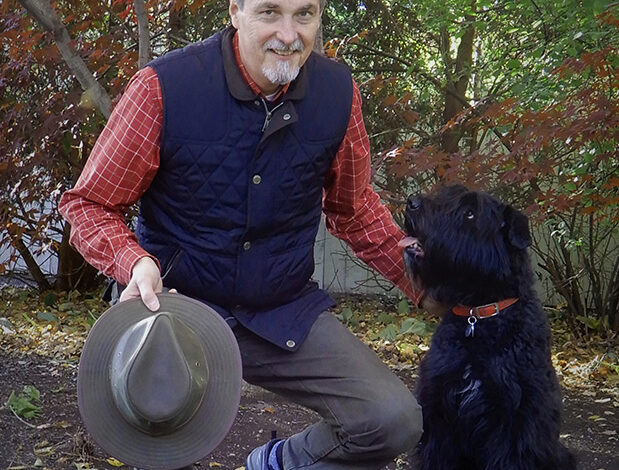How did you get interested in fiction writing?
It had impetus from two sources. The first source was the story about two ancient wolves I made up on a long car ride to entertain my wife. It was entertaining enough that she suggested I jot down some notes, which lay dormant for several years. The second thing that stimulated my interest was hearing an interview with Dean Koontz. I was impressed by his keen view on life and his love of writing fiction. I then took the opportunity to read some of his books during commercial airline flights while traveling on business.
What interesting facts did you learn about history, wolves, or other topics from your research for the book?
- The history of the Lupa, the Capitoline Wolf, which dates back to 295 BC.
- Wolves’ sensory ability to smell while inhaling and exhaling.
- I was surprised by the approximate 10% genetic variation between wolf and dog; I thought the difference would be less.
- The geological dynamics of the subduction zone around The Bay of Naples.
Where did you get the idea for this book?
The opening scene and the characters of Arn and Versa, including their names, came purely out of my imagination. A few years later a friend gave me an article that reported the earliest zooarchaeology evidence for the origin of wolves was from Italy. Once I matched my ancient wolf characters to Italy, adapting the legend of Romulus and Remus followed.
Are any of the characters based on real people?
Yes and no. Other than the historical characters who are obvious, my anthropomorphized wolves are amalgamations of certain personality traits of people I have known, blended with the personalities of dogs I have had the honor to adopt.
Which character(s) were the most fun to write about?
That is a very hard question to answer. I love all of the members of The First Wolf Pack. If I had to pick one, I’d pick two—Arn and Tria. They each had the most psychologically-complex personalities, especially their recoveries from selfishness and ignorance.
What is the central message of this book?
The main message is the importance of humility to achieve courage and find fulfilment; plus the overall benefit of the immutable virtues of the Wolf Ways to maximize the success of family and community.
What would you like readers to learn from this book?
I hope that readers might contemplate where and when they see God in nature. Also, wolves are intelligent, regal creatures with a highly-effective social structure. The characteristics they exhibit in the story encourage us all to work together in a cooperative mindset.
Do you have any new books in the works?
Yes, I am focused on writing one book right now about prejudice and redemption in depression-era Chicago. I have another set of ideas on the drawing board, but it’s too soon to speak of it.

Recent Comments